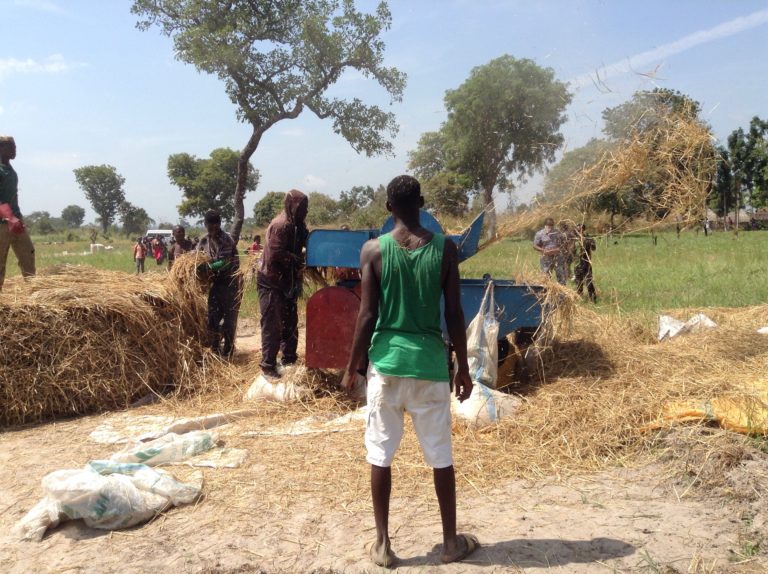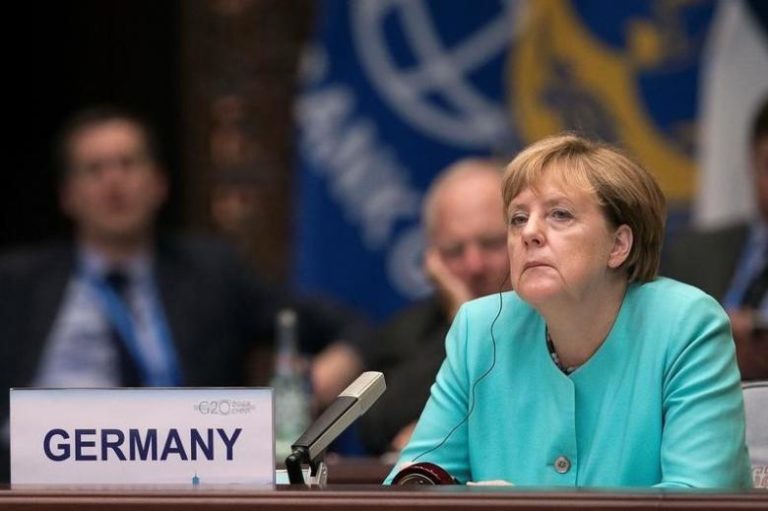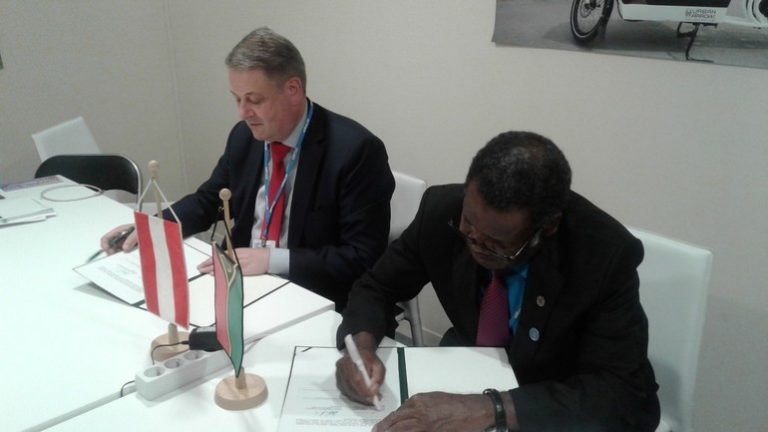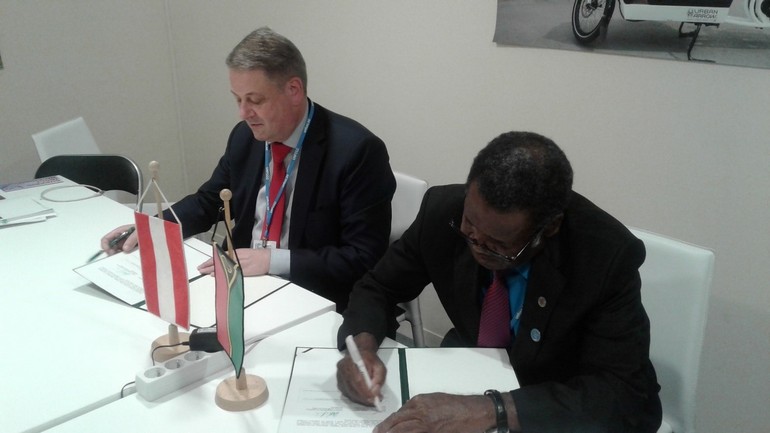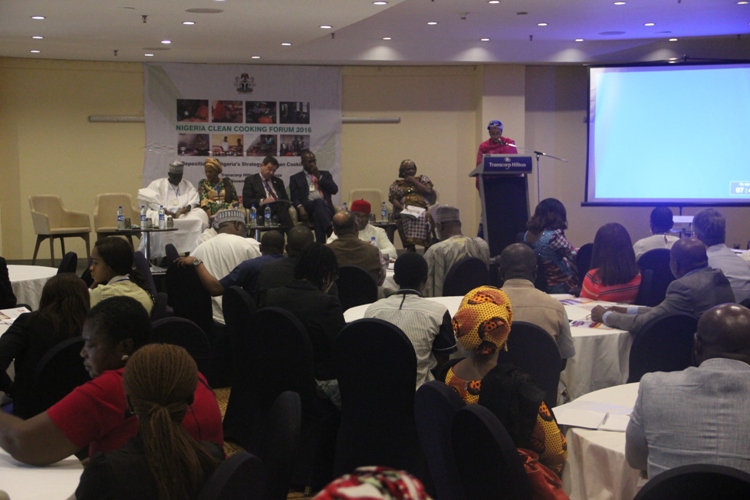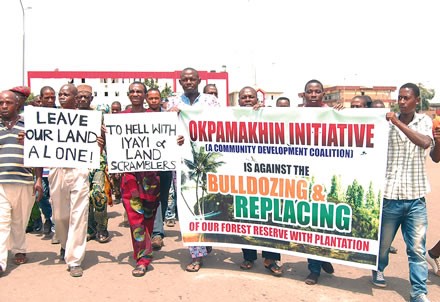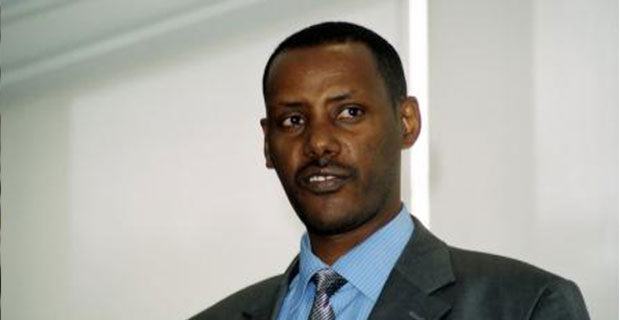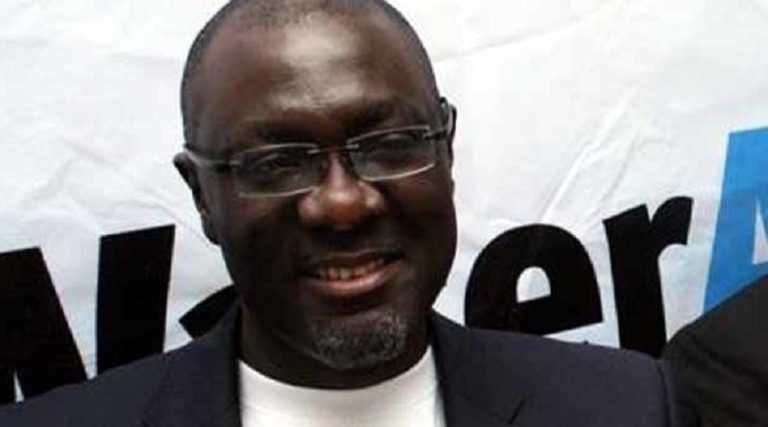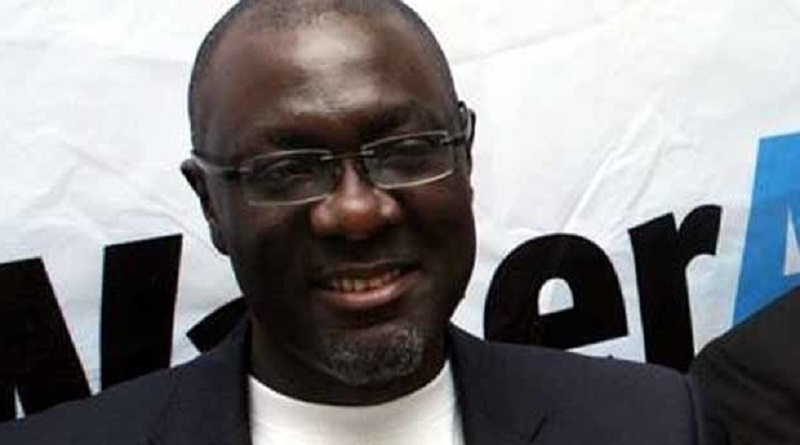Governor Samuel Ortom of Benue State has declared that Benue, being an agricultural state, is particularly interested in the Value Chain Development Programme (VCDP) assisted by the International Fund for Agricultural Development (IFAD) and the Federal Government.
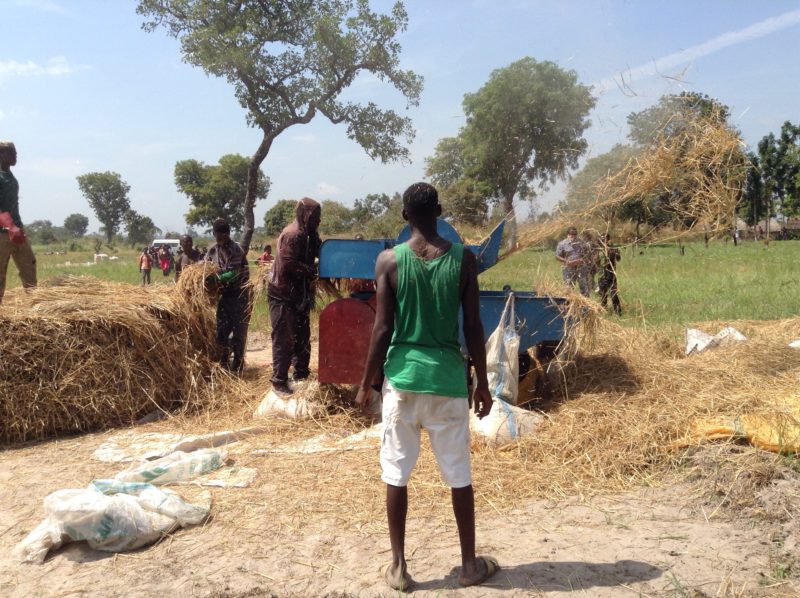
According to the governor, who made the disclosure on Thursday, November 1, 2016 in his office in Makurdi while playing host to the IFAD/FGN Supervision Mission Team to Benue who came calling, Benue has comparative advantage in the programme.
The governor, who was represented by the Deputy Governor, Benson Abounu, stated that the ultimate aim of the programme, which is in empowering Benue rice and cassava farmers with better seeds, farm inputs and better yields to promote bumper harvest for processing, is commendable.
He noted that the government would continue to key into the programme and ensure that Benue will eventually produce three crops being rice, cassava and soya beans for the entire nation.
Earlier, the Mission Leader, IFAD/FGN 4th supervision mission to Benue-VCDP, Dr Samuel Eremie, had appealed to the Benue State Government to offset the N166 million outstanding counterpart fund from the state to the IFAD/FGN Value Chain Development Programme (VCDP) in the state.
Dr. Eremie, who made the call, said they want to draw the governor’s attention to the none payment of the N166 million to the VCDP as earlier committed to by government during their last courtesy visit on him.
“We feel encouraged by this support but we want to see it translate into action as we need this counterpart funding support by the turn of the season for dry season farming,” he said.
In his address when the team earlier paid a courtesy visit on him in his office, the Benue State Commissioner for Agriculture and Natural Resource, James Anbua, maintained that they were anxious with high hopes and expectations that IFAD/FGN visit will portend much good for the state.
“You have given our farmers great inputs and seedlings which has increased our rice farmers yields so with more aid, they will produce more,” he said.
He added that this year’s harvest is bound to be a bumper one with the intervention of IFAD/FGN and the produce from the state will help in jacking up the hitherto low produce of rice in the country which encourages importation of rice.
Also speaking, the IFAD/FGN Country Programme Officer Nigeria, Dr Ben Odoemena, commended the Benue State Government for the support given them in the flagship of the programme.
He outlined that the programme is a business and private sector-driven one and appreciated the state government’s support so far and having invested in the state’s farmers for the past nine months, they were on a mission to see if the farmers were doing well now that they have started harvesting and living up to the agreement they had with VCDP.
National Programme Officer VCDP, Dr Onoja Ameh, in his speech at Daudu advised farmers to be sincere to the agreement reached for the programme, adding that, with sincerity, the purpose of the programme will succeed as they will desist from side selling but sell to the official off-taker, OLAM.
According to him, farmers should not hesitate to make the best out of the VCDP programme in order to benefit more with sustainability even after the programme wraps up.
OLAM representative, Sam Jay, while speaking, stated that the company has the capacity to conveniently carry out its off-taker job and buy off rice from supported rice farmers.
To that end, he encouraged the farmers to key into the agreement reached in harvesting their produce and selling same to OLAM.
Also, the State Programme Officer, VCDP Benue State, Emmanuel Igbaukum, while addressing the team in Ukpiam, noted that when the VCDP programme took off in Guma, the area had been ravaged by attacks from suspected Fulani herdsmen. But now, it has given the people succour, hope and a new lease of life and livelihood.
He added that the visit has created a forum between the farmers and the IFAD/FGN team to bring to the fore, achievements, constraints and prospects of the project in the state.
The supervision visit which split into two groups, covered Guma Local Government Area and Gwer-East Local Government Area with a visit to OLAM Redemption Centre at Daudu, Sumaka FO, Ukpiam, Dooshima Hemba Farm Site, Mbaukaan Rice/Cassava Farms and Ashina Women CS Cassava Farm at Aliade, Kaa-Tema-Mem Agric CS Rice Farm, Onmbadaa VCDP Rice Production CS, Taraku respectively with an interaction between the farmers and IFAD/FGN team.
By Damian Daga

